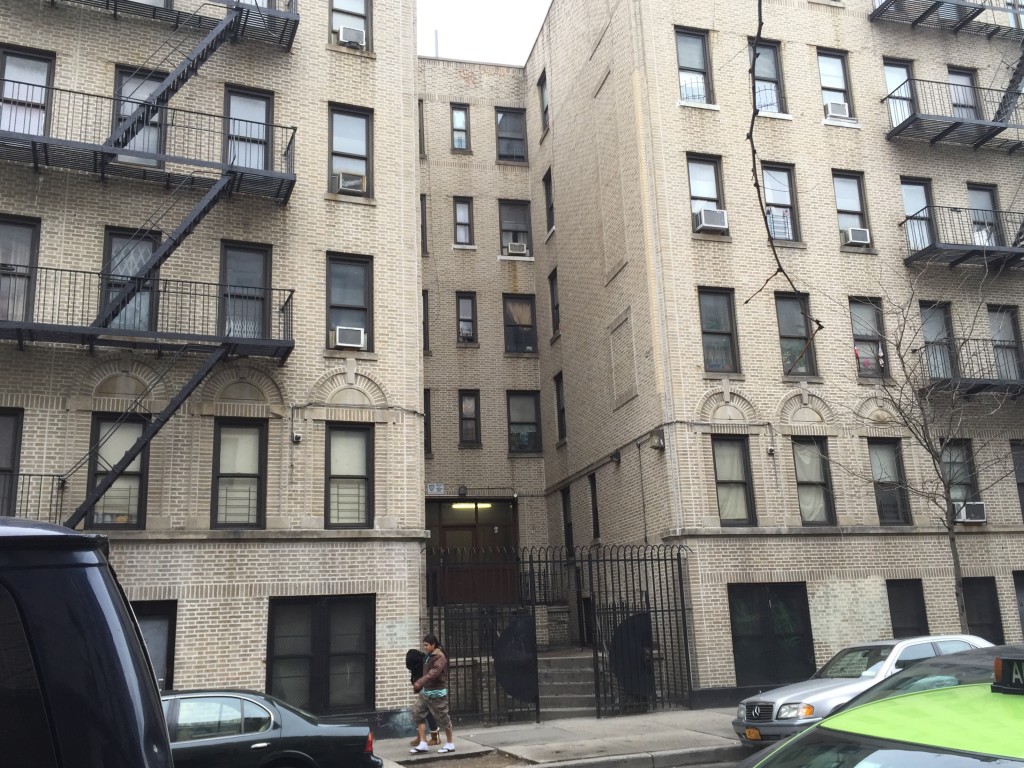
Photo by David Cruz
By JASMINE GOMEZ and DAVID CRUZ
The news of a Mott Haven teen plunging six stories from a building in Fordham on April 2 has one neighborhood reflecting on the criminality of marijuana and its effect on their local community.
Emotions are mixed over the circumstances that led 17-year-old Hakeem Kuta to jump from a rooftop on 2685 Valentine Ave. as he attempted to evade police officers stopping him for smoking marijuana in a lobby. Police say they were tipped by a passerby that Kuta and his friends were smoking pot in the lobby. Two days later, Kuta died at St. Barnabas Hospital.
Although there is debate and uncertainty surrounding the circumstances that led to Kuta’s death, residents agreed that the death of a young man was particularly unfortunate to the neighborhood, which recently experienced the loss of 18-year-old Jonathan “Tiko” Martinez, shot to death on March 14 just several buildings down from where Kuta fell.
Marc Ryan, a neighbor who witnessed Kuta’s body shortly after he fell, expressed anger at the reality that Kuta died so young. “Young kid, the kid didn’t even get the chance to start life,” said Ryan. “The kid didn’t even get a chance!”
Michael Delbois, a resident of another building on Valentine Ave. noted that “you don’t get arrested for marijuana. You get a ticket.”
“[Kuta] didn’t know that,” Delbois continued. “If you know that you not gonna get arrested, you would just sit there and get the ticket. If he knew that, he wouldn’t have run.”
Professor Augie Aloia, a professor at the Monroe College School of Criminal Justice and a retired NYPD sergeant, agreed that had Kuta remained he would have received a juvenile summons.
“His violation is punishable only by a fine of not more than $100,” said Aloia, who defended officers for responding to the incident.
Embedded in the rooftop incident were the tiny hallmarks of the Eric Garner chokehold case in Staten Island. Garner, pursued by police last summer for selling un-taxed cigarettes, died after being placed in a chokehold as he resisted arrest.
The low-level misdemeanor fell under the purview of Broken Windows, a theory where police respond to simple quality of life crimes in the hopes of stemming serious crimes. Aloia noted that pot smoking inside the Valentine Avenue lobby is only the “tip of the iceberg.”
“If you’re going to tolerate kids loitering and smoking marijuana, well, what’s next? Are we going to shoot up in the hallways with heroin?” said Aloia. “Are we going to be dealing in your building? And that’s going to invite bigger problems. People are going to be coming in, carrying guns, or hardcore dealers looking for bigger stuff and now you lost your building.”
It seems that New York laws on recreational pot smoking remain hazy to some given the loopholes exploited by authorities.
Marijuana possession remains illegal for recreational use, though its penalties have weakened some. Possession of marijuana in amounts of 25 grams or less has actually been decriminalized in the state of NY since 1977 so long as it’s not in plain view. In New York, then Police Commissioner Ray Kelly eliminated a loophole where those stopped by police would be penalized if they were forced to empty their pockets to reveal marijuana. Last November Mayor Bill de Blasio furthered the decriminalization of marijuana agenda when he ordered that instead of arresting individuals in possession of marijuana, the NYPD issue civil citations instead.
So the question still remains what exactly would have happened to Kuta had he stopped. It’s a question that will go unanswered. One thing agreed on by some Valentine Avenue residents is Kuta should never have lost his life over pot.
“A young kid lost his life over what?” asked Ryan the neighbor. “For what? What did he lose his life for?”




